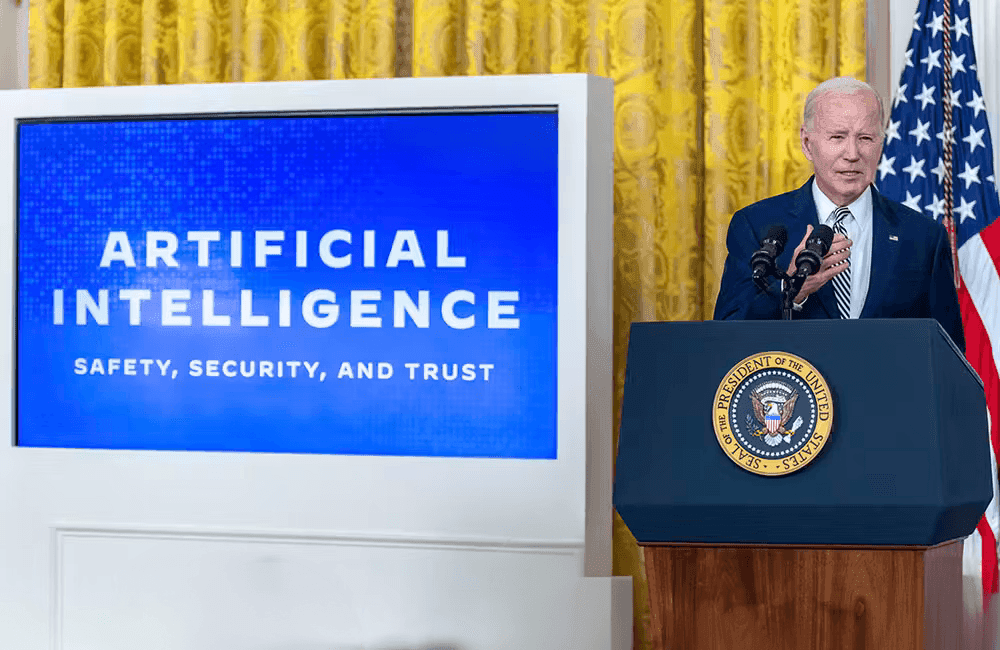Biden Administration Unveils Sweeping New Rules to Control Global AI Spread

In a bold move to assert U.S. dominance in the rapidly evolving field of artificial intelligence (AI), the Biden administration has introduced a comprehensive set of regulations aimed at controlling the international sharing of AI chips and models. The new rules, announced on January 13, 2025, are designed to safeguard national security, maintain economic competitiveness, and promote responsible AI development. However, they have already sparked significant controversy both domestically and internationally.
Key Provisions of the New Rules
The regulations introduce a tiered system for access to AI chips, dividing countries into three categories:
- Tier 1: The United States and 18 close allies, including the UK, Canada, Germany, Japan, South Korea, and Taiwan, will have unrestricted access to AI chips.
- Tier 2: Countries under U.S. arms embargoes, such as China and Russia, will face a complete ban on purchasing AI chips.
- Tier 3: All other nations will be subject to import caps on AI chips, though they can negotiate special agreements with the U.S. government to increase access.
In addition to the tiered access system, the rules impose strict restrictions on data centers operated by companies like Microsoft and Google. To receive government accreditation, these companies must ensure that 75% of their total AI computing power remains within the U.S. or allied countries. Furthermore, no more than 7% of their computing power can be located in any single foreign nation.
The regulations also establish the first-ever controls on AI model “weights”,the parameters that determine how AI models make predictions. This measure is intended to protect intellectual property and prevent unauthorized access to advanced AI technologies.
Rationale Behind the Rules
The Biden administration has justified the new rules on several grounds:
- National Security: By restricting access to advanced AI technologies, the U.S. aims to prevent adversaries like China and Russia from using AI for military advancements, cyberattacks, and other threats.
- Economic Competitiveness: The rules are designed to maintain U.S. leadership in the AI industry and secure critical supply chains.
- Responsible AI Development: The administration hopes to promote global standards for responsible AI development and mitigate potential risks associated with the technology.
International and Industry Reactions
The new regulations have elicited mixed reactions from the international community and the tech industry.
- European Union: The EU has expressed concerns that the restrictions could negatively impact its member states, arguing that European countries should be seen as economic opportunities rather than security risks.
- China: Beijing has strongly opposed the rules, labeling them an extension of U.S. “long-arm jurisdiction” and vowing to protect its interests.
Within the tech industry, the rules have been met with significant pushback:
- Nvidia: The semiconductor giant has called the regulations “unprecedented and misguided,” warning that they could stifle global innovation and economic growth.
- Information Technology Industry Council: The council has requested Congressional intervention to overturn the rules, arguing that they threaten sales and hamper innovation.
- Semiconductor Industry Association: The association has criticized the rushed implementation of the rules and the lack of industry input during their development.
Potential Implications
The new rules could have far-reaching consequences for the global AI landscape:
- Shift in Global AI Development: The regulations may lead to a consolidation of AI development within the U.S. and its allied countries, potentially marginalizing other nations.
- Increased Tensions with China: The rules are likely to exacerbate the ongoing technological rivalry between the U.S. and China, further escalating tensions.
- Impact on Global Innovation: Critics warn that the restrictions could slow down AI advancement by limiting collaboration and knowledge sharing across borders.
The implementation and enforcement of these complex rules remain uncertain. The incoming Trump administration, set to take office later this year, could choose to uphold, modify, or even overturn the regulations. Additionally, Congress may exercise its oversight authority to review and potentially reverse the rules.
The Biden administration’s new AI regulations mark a significant shift in the U.S. approach to global technology leadership. While proponents argue that the rules are necessary to protect national security and maintain economic competitiveness, critics warn of potential negative consequences for innovation and international relations. The long-term impact of these regulations will depend on their implementation, the response of other countries, and the actions of the incoming Trump administration.
As the global AI landscape continues to evolve, the debate over these rules is likely to intensify, with significant implications for the future of AI development and international cooperation.



